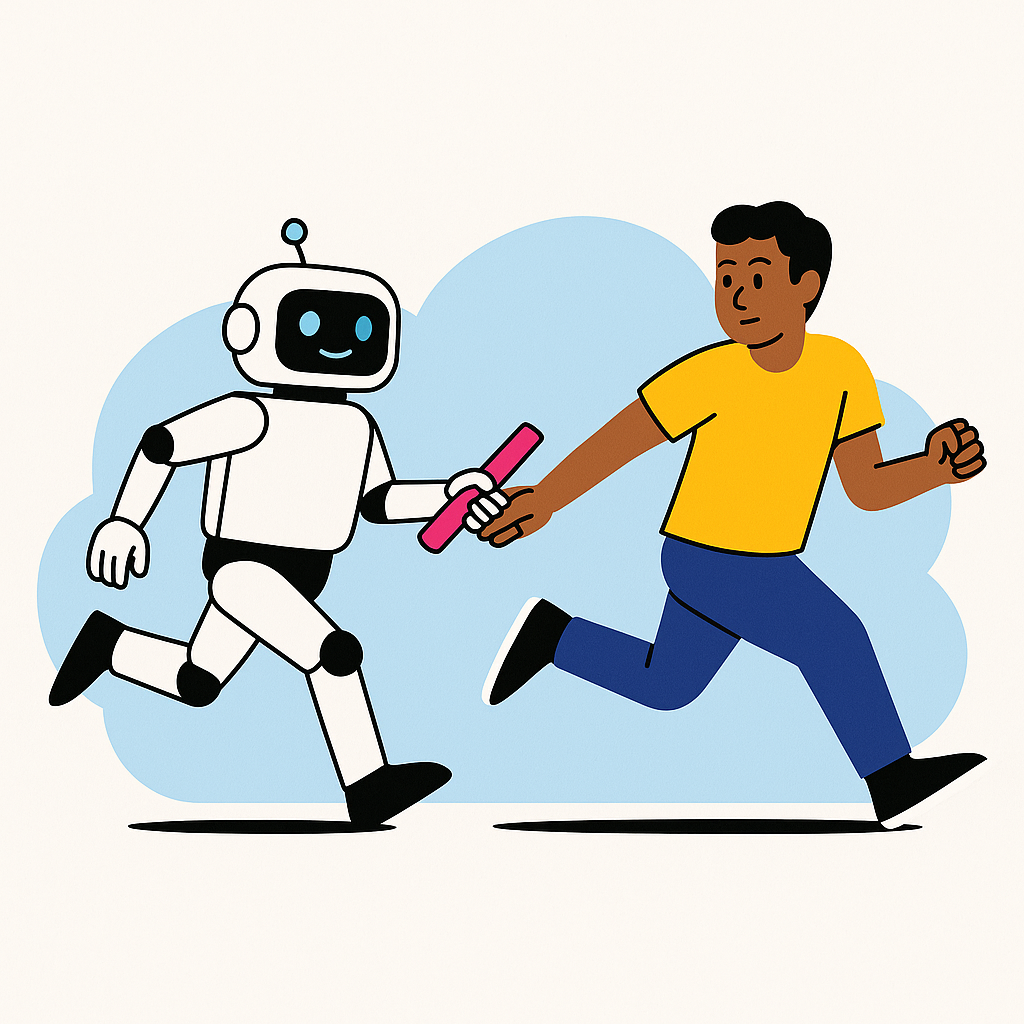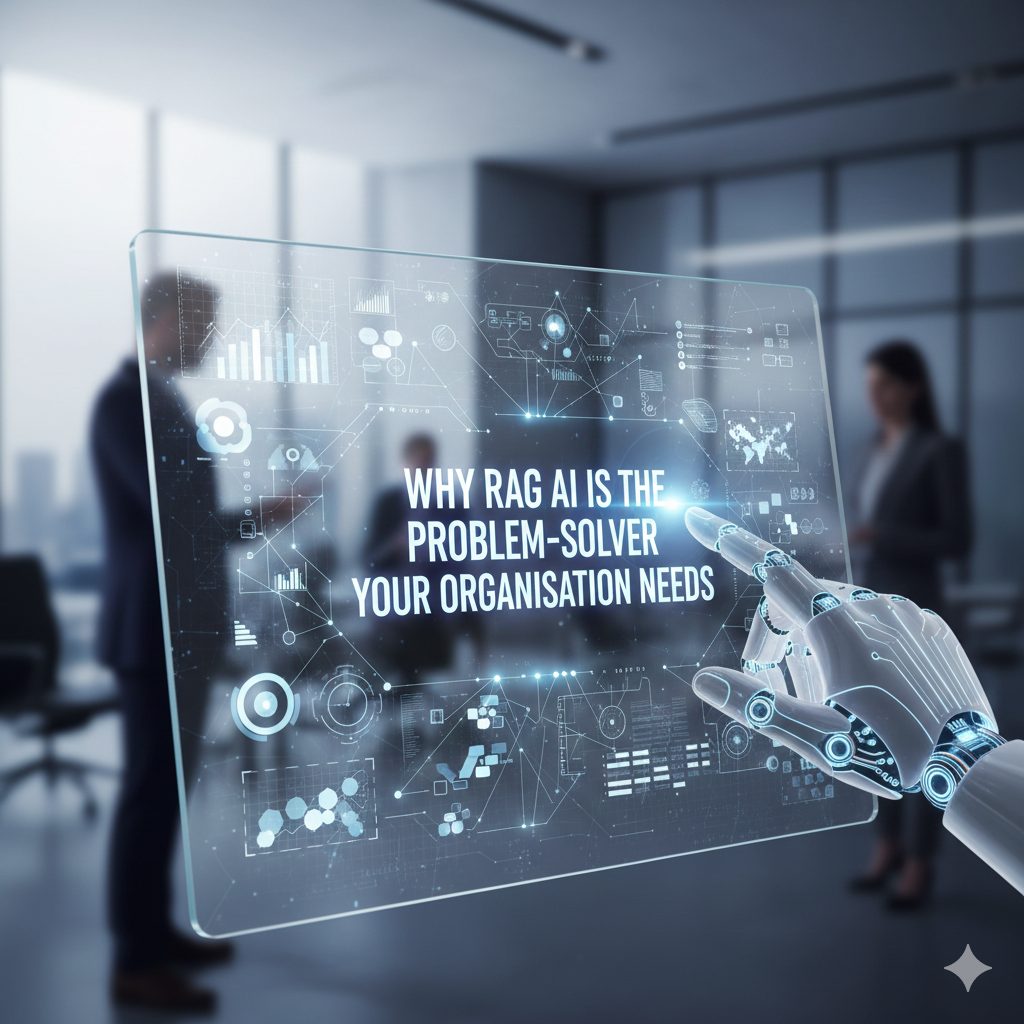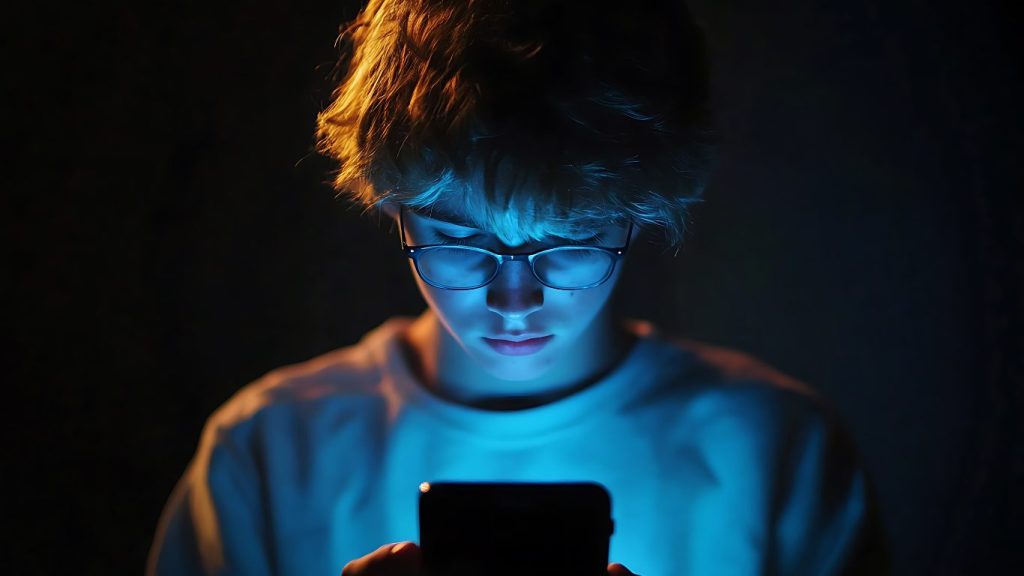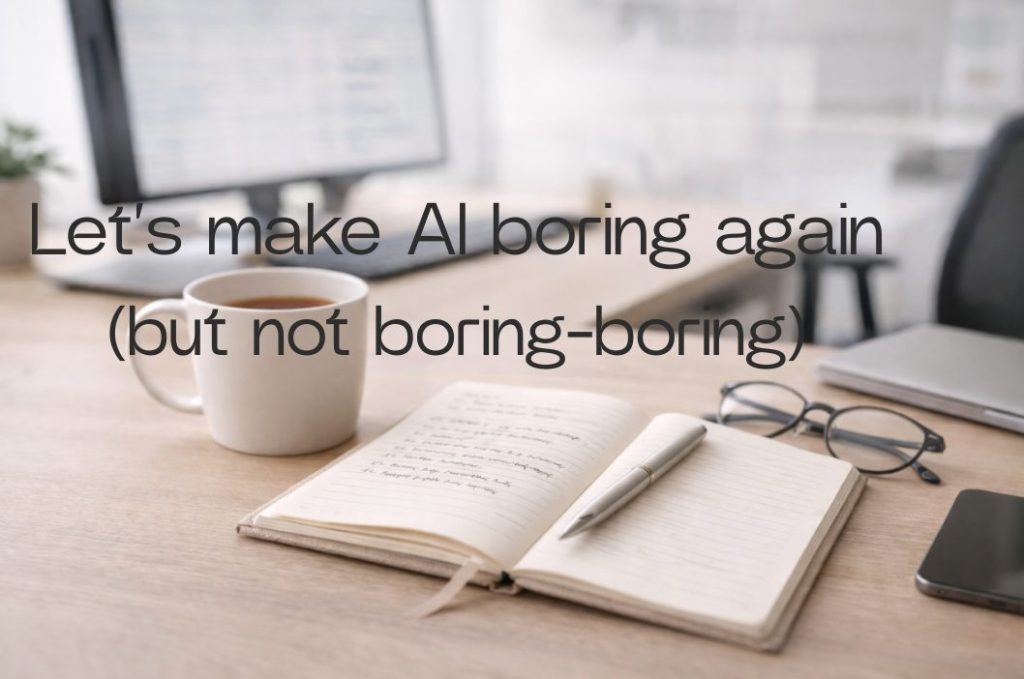
When ChatGPT went down recently, productivity wobbled—and so did we. But the real story isn’t about outage panic; it’s about how deeply generative AI has embedded itself into our working lives. Generative AI can boost productivity and creativity—but only when humans stay engaged. It’s not here to replace us, but to work with us. Because the real power lies in the partnership—and the judgement, empathy, and curiosity we still bring to the table.
ChatGPT went down the other day, and the online world had what tech professionals might call a proper wobble. The outage affected millions of users and triggered over half a million Google searches in 24 hours.¹ Everything was completely fine—but judging from the reactions, you’d think people had lost a limb. Productivity stalled, and quite a few folks were apparently left staring at their screens until they remembered they could still post memes.
I get it. I have a similar attachment to our incredible AI development team. My favourite developer—let’s call him Debbie for now, because that’s what Teams calls him when it takes the notes—is usually pretty quiet on our morning calls. But there was an audible intake of breath from the rest of us when he mentioned he’d be taking a few days off. Debbie’s leave is sanctioned—in fact, it’s actively encouraged—but we’re all a bit fragile in our own ways and don’t much like the idea of getting things done without him. Even when we’ve addressed all our practical worries.
And it really is fine. We’ve planned around it, he’s done amazing knowledge and skills sharing, and we know he’ll be back.
We’re essentially sulking.
But the similarity between my reaction to Debbie’s well-earned vaycay and the reaction we saw to OpenAI’s outage this week is one of the strongest signals that we’ve crossed a historic threshold. Generative AI is not just a tool anymore—and not just for specialists. It’s become a crucial team member.
There’s still an ‘I’ in Team You + AI
The short disruption revealed something deeper—not just about how we use AI, but about the kind of relationship we’re forming with it, and how it’s shaping our days. It’s worth reflecting on dependency—emotional and practical—and what we still need to bring to the table ourselves.
Used well, generative AI doesn’t replace us. It’s not an autopilot or a magic wand. It’s more like a sparring partner, or an ultra-fast assistant who never gets tired, but still needs direction. It makes us more effective.
The research backs this up. Studies from MIT and others show that AI tools can significantly boost both productivity and output quality, especially for less experienced professionals. But there’s a catch: these gains only materialise when humans stay actively engaged—questioning, refining, evaluating.
In short, the best results come when we collaborate. Not when we check out.
When your teammate takes a break
The outage last week made something very clear: many of us (and yes, this includes me) have become quietly dependent on generative AI—not because we’re lazy, but because we’ve integrated it into how we think and work. We plan tasks assuming it’ll help. We make commitments based on what we know it can contribute.
But what happens when AI is unavailable? Or—more to the point—wrong? Or simply not appropriate for the job in hand?
That’s where human skill matters most. According to the OECD’s guidance on AI literacy, over-reliance on AI risks undermining critical thinking, especially in educational and professional settings. We still need to understand the underlying concepts, make informed decisions, and stay accountable for the outputs we use.
Delegating isn’t cheating—but you still need to know your stuff
I wrote last year about whether using AI is “cheating”—and concluded that, like calculators in maths lessons, it isn’t. Except when it is.
It would be off-brand to offer a simple answer: the truth is, it depends on the context. The tool itself isn’t the problem; how and when we use it is.
Take calculators. We’ve put them everywhere—on phones, in classrooms, even in watches. But we still teach children how numbers work before we let them rely on the shortcut. We still test mental arithmetic in schools and job assessments. There’s a system in place—teaching, assessment, real-world application—that helps the knowledge stick.
AI is on a similar journey—but the infrastructure around it isn’t there yet. We know it’s fine to use it to save time, improve drafts, and bounce around ideas. We’re also making strides on ethics and governance. But we haven’t nailed the core curriculum or created a standardised test. A lot of us are learning key concepts after school, in real time.
In the meantime, we need to protect our critical thinking. The key question is: am I using this because it’s helpful—or because I don’t know how to do it myself?
Accountability still lives with you
Generative AI is brilliant at suggesting, summarising, and speeding things up. But it doesn’t take responsibility. Tech companies can tweak what the AI says—try to train it so it doesn’t mainly plan bank robberies, for example—but the AI itself can’t actually understand what’s ethical, or whether something fits your organisation’s tone or goals.
That’s still your job.
And it’s a good one.
Because the human bits—your judgement, empathy, creativity—are not only the hardest to automate, they’re the most rewarding. No one gets into public service, education, healthcare, or creative industries because they dream of batch-processing emails. We do it because we care about people, outcomes, and impact.
We care about being happy and safe—whatever that looks like for each of us—and we want that for the people around us. AI lets us spend more time in that happy space, if we use it wisely.
Lesson 1: Become a better teammate
If AI is your assistant, success depends on clear communication, shared purpose, and mutual challenge. Here are a few ways to make the most of the partnership:
- Prompt iteratively: Don’t stop at the first output. Ask for alternatives, rewrites, different formats. The ‘conversation’ helps trigger your critical thinking.
- Use more than one model: Claude, ChatGPT, Gemini, Copilot… each has strengths and weaknesses. Bespoke or specialist solutions can be better value, and more emerge every day. Switching tools sharpens your thinking and helps you understand which tool works for which problem.
- Apply your own lens: Does it make sense? Is it true? Is it right for this audience or situation?
- Know when not to use it: Sometimes it’s faster—and more meaningful—to write the thank-you note yourself. Be honest: that birthday card from your niece was better for the misspelt words. Some things need to be authentic more than perfect.
And sometimes, skip the tools altogether. Talk to someone. Or talk to no one and enjoy the quiet. Fun fact: I didn’t even know the outage had happened. I was meeting a colleague in real life. We talked through some complicated people issues and checked in on each other. It was immensely valuable—professionally, personally, and emotionally.
Lesson 2: You’re still the captain of your ship
The people who thrive with AI won’t be the ones who use it the most—they’ll be the ones who use it well. The ones who stay curious, stay critical, and keep hold of the things only humans can do.
Because AI is a team sport—but you’re still the one calling the plays.
Lesson 3: It’s okay to fall silent and come back stronger
Debbie needed a holiday. Rest and change fuel creativity and problem-solving. ChatGPT’s downtime was followed by the launch of GPT-4o—a stronger, faster, more multimodal model that handled inputs across text, image, and speech.
The break paid off.
Sometimes, space and silence are part of the process.
…and that’s why I’m off to chat with Perplexity about holiday destinations.
¹ Source: MarketWatch – ChatGPT outage hits 400M users
Fun fact: None of our private GPTs were affected by the outage, including those using OpenAI’s tech and language models. That’s because they’re built for each client on secure infrastructure—and we only switch them to newer models once they’re up and running smoothly. Just saying.




